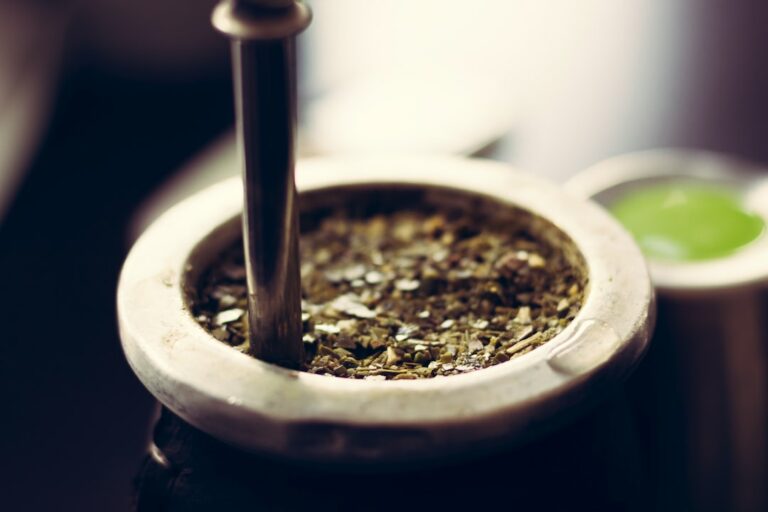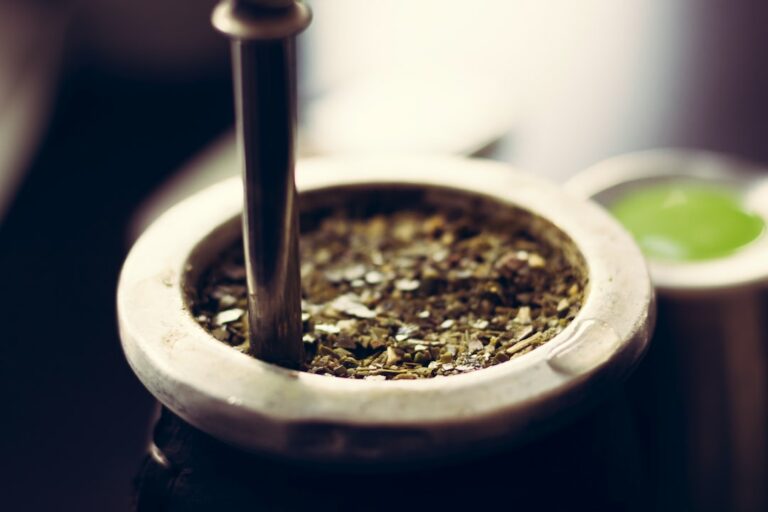Introduction
What are nerves?
Nerves are an essential part of the human body’s intricate network of communication. They are responsible for transmitting signals between the brain and various parts of the body, allowing us to feel sensations and control our movements. Understanding the role of nerves is crucial in exploring natural anxiety remedies. By identifying the factors that relax nerves, we can find ways to promote a sense of calm and alleviate anxiety. So, what are nerves and how can we naturally soothe them?
The impact of stress on nerves
Stress can have a significant impact on the health of our nerves. It can disrupt the normal functioning of the nervous system, leading to various physical and psychological symptoms. Prolonged stress can increase the risk of nerve damage and exacerbate existing nerve conditions. It is important to find effective ways to manage and reduce stress to protect our nerves and maintain overall well-being.
How food can help relax nerves
Food plays a crucial role in promoting relaxation and calming the nerves. Certain foods contain nutrients and compounds that have a direct impact on our nervous system, helping to reduce stress and anxiety. Incorporating these foods into our diet can contribute to a sense of calmness and overall well-being. Some key foods that are known for their nerve-relaxing properties include chamomile tea, dark chocolate, fatty fish like salmon, nuts and seeds, and green leafy vegetables. These foods are rich in antioxidants, omega-3 fatty acids, and magnesium, which are all beneficial for our nervous system. By choosing the right foods, we can support our body’s natural ability to relax and find inner peace.
Foods that relax nerves

Chamomile tea
Chamomile tea is a popular herbal remedy known for its calming effects on the body and mind. It has been used for centuries as a natural way to promote relaxation and relieve anxiety. Unlike traditional medications, chamomile tea offers an opposite approach to medicine by providing a gentle and soothing solution. The main active ingredient in chamomile tea is bisabolol, which has been found to have anti-inflammatory and anti-anxiety properties. This makes chamomile tea an ideal choice for those looking for a natural way to relax their nerves. With its delicate floral aroma and mild taste, chamomile tea is a comforting beverage that can be enjoyed at any time of the day. So, if you’re feeling stressed or anxious, why not try a cup of chamomile tea and experience its calming benefits firsthand?
Dark chocolate
Dark chocolate is one of the natural remedies that can help relax your nerves. It contains compounds that have been shown to promote feelings of calmness and reduce stress. The flavonoids and antioxidants found in dark chocolate can also improve blood flow to the brain, which can enhance cognitive function and mood. Additionally, dark chocolate contains magnesium, which is known to have a calming effect on the nervous system. Incorporating dark chocolate into your diet in moderation may provide a tasty and beneficial way to support your overall well-being.
Avocado
Avocado is a nutritious fruit that is known for its many health benefits. It is rich in healthy fats, fiber, and vitamins, making it a great addition to a balanced diet. Avocado is also a natural source of xanax dosage, which is a medication commonly used to treat anxiety and panic disorders. Incorporating avocado into your diet can help promote relaxation and calmness, as it contains nutrients that support brain health and reduce stress. Additionally, the high levels of potassium in avocado can help regulate blood pressure, further contributing to a sense of calm. Whether enjoyed on its own, spread on toast, or added to salads, avocados are a delicious and beneficial food for promoting relaxation and soothing nerves.
Lifestyle changes for nerve relaxation

Regular exercise
Regular exercise plays a crucial role in maintaining overall well-being and promoting relaxation. Engaging in physical activity on a regular basis has been shown to reduce stress levels and improve mood. It not only helps in releasing endorphins, the feel-good hormones, but also increases blood flow to the brain, enhancing cognitive function. Additionally, exercise helps in regulating the production of stress hormones, such as cortisol, and promotes better sleep. Incorporating a variety of exercises, such as cardio, strength training, and flexibility exercises, into your routine can have a positive impact on your mental and emotional health. So, make sure to allocate time for regular exercise to reap its numerous benefits and promote relaxation.
Meditation and deep breathing
Meditation and deep breathing are powerful techniques that can help relax your nerves. By practicing meditation, you can calm your mind and reduce stress levels. Deep breathing exercises, on the other hand, can promote relaxation by slowing down your heart rate and activating the body’s natural relaxation response. Incorporating these techniques into your daily routine can provide significant benefits for your overall well-being.
Adequate sleep
Adequate sleep is crucial for maintaining a healthy nervous system. When we sleep, our body repairs and rejuvenates itself, allowing our nerves to relax and recharge. Lack of sleep can lead to increased stress and anxiety, making it even more important to prioritize a good night’s rest. By ensuring we get enough sleep each night, we can support our nervous system and promote overall well-being.
Other natural remedies for nerve relaxation

Herbal supplements
Herbal supplements are a popular choice for promoting relaxation and calmness. One of the most important herbal supplements known for its calming effects is the strongest antibacterial herb. This powerful herb has been used for centuries to support the nervous system and promote a sense of tranquility. Its antibacterial properties make it an excellent choice for maintaining overall wellness. If you’re looking for natural ways to relax your nerves, incorporating the strongest antibacterial herb into your routine may be beneficial. Explore more about the benefits of this herb here.
Essential oils
Essential oils have been used for centuries to promote relaxation and reduce stress. One popular essential oil known for its calming properties is cinnamon. Cinnamon is derived from the bark of the cinnamon tree and has a warm, comforting scent. It has been used in traditional medicine for its various health benefits. The benefits of cinnamon include its ability to reduce inflammation, improve blood circulation, and boost brain function. Incorporating cinnamon into your daily routine can help relax your nerves and promote a sense of calm.
Yoga
Yoga is a centuries-old practice that has gained significant attention in recent years due to its numerous health benefits. Scientific research has shown that practicing yoga can help relax the nerves and reduce stress levels. The combination of physical postures, breathing exercises, and meditation techniques in yoga can promote a sense of calmness and tranquility. Additionally, yoga has been found to improve flexibility, strength, and overall well-being. Many studies have highlighted the positive effects of yoga on mental health, including its ability to alleviate symptoms of anxiety and depression. Incorporating yoga into your daily routine can be a powerful tool for managing stress and promoting relaxation.
Conclusion

Summary of nerve relaxing foods and techniques
Summary of nerve relaxing foods and techniques:
When it comes to taking care of your mental health, it is important to incorporate foods and techniques that can help relax your nerves. These nerve relaxing foods and techniques can play a significant role in promoting overall well-being and aiding in the recovery process. By incorporating these practices into your daily routine, you can experience a sense of calm and tranquility.
Withdrawal from stressful situations is crucial for maintaining mental health. Taking time for yourself and engaging in activities that bring you joy can help alleviate stress and promote relaxation. Additionally, incorporating foods rich in nutrients such as omega-3 fatty acids, magnesium, and vitamin B can benefit your nervous system. Foods like fatty fish, leafy greens, and whole grains can provide the necessary nutrients to support nerve health.
In summary, prioritizing nerve relaxing foods and techniques can contribute to your overall mental health and recovery. By incorporating these practices into your lifestyle, you can create a positive impact on your well-being and ensure a healthier and more relaxed state of mind.
Importance of incorporating these into daily routine
Incorporating foods that promote natural brain healing into your daily routine is of utmost importance. These foods have the ability to relax your nerves and provide a sense of calmness and tranquility. By including these foods in your diet, you can enhance your overall well-being and support your body’s natural ability to heal. Natural brain healing is a vital aspect of maintaining a healthy mind and body, and incorporating these foods into your daily routine can greatly contribute to this process.
Seeking professional help if needed
If you are experiencing severe anxiety or stress that is affecting your daily life, it is important to seek professional help. A mental health professional can provide you with the support and guidance you need to manage your symptoms and improve your overall well-being. They can help you identify the underlying causes of your anxiety and develop coping strategies to help you relax and find relief. Remember, seeking help is a sign of strength and taking care of your mental health is just as important as taking care of your physical health.
FAQ (Frequently Asked Questions)

Can certain foods worsen nerve symptoms?
Certain foods can worsen nerve symptoms and should be avoided. These foods include processed foods, sugary snacks, and high-fat foods. Processed foods often contain artificial additives and preservatives that can trigger inflammation and nerve irritation. Sugary snacks can cause a spike in blood sugar levels, leading to nerve damage over time. High-fat foods, especially those high in saturated fats, can contribute to inflammation and increase the risk of nerve damage. It is important to maintain a balanced diet and avoid these foods to help manage nerve symptoms.
How long does it take for nerve relaxation techniques to work?
Nerve relaxation techniques can vary in their effectiveness and the time it takes for them to work. The duration for these techniques to take effect largely depends on the individual and the specific technique being used. Some techniques, such as deep breathing exercises and meditation, can provide immediate relief and relaxation. These methods work by activating the body’s relaxation response and reducing stress levels. Other techniques, such as progressive muscle relaxation and aromatherapy, may take longer to produce noticeable results. It is important to remember that consistency and regular practice are key to experiencing the full benefits of these techniques. By incorporating nerve relaxation techniques into your daily routine, you can promote a sense of calm and relaxation in your life.
Are there any side effects of using natural remedies for nerve relaxation?
Using herbal remedies for nerve relaxation is generally safe and effective. However, it is important to be aware of potential side effects. Some herbal remedies may interact with certain medications or have adverse effects on certain individuals. It is recommended to consult with a healthcare professional before starting any herbal remedy for nerve relaxation. By doing so, you can ensure that the chosen herbal remedy is suitable for you and does not pose any risks or side effects.






























